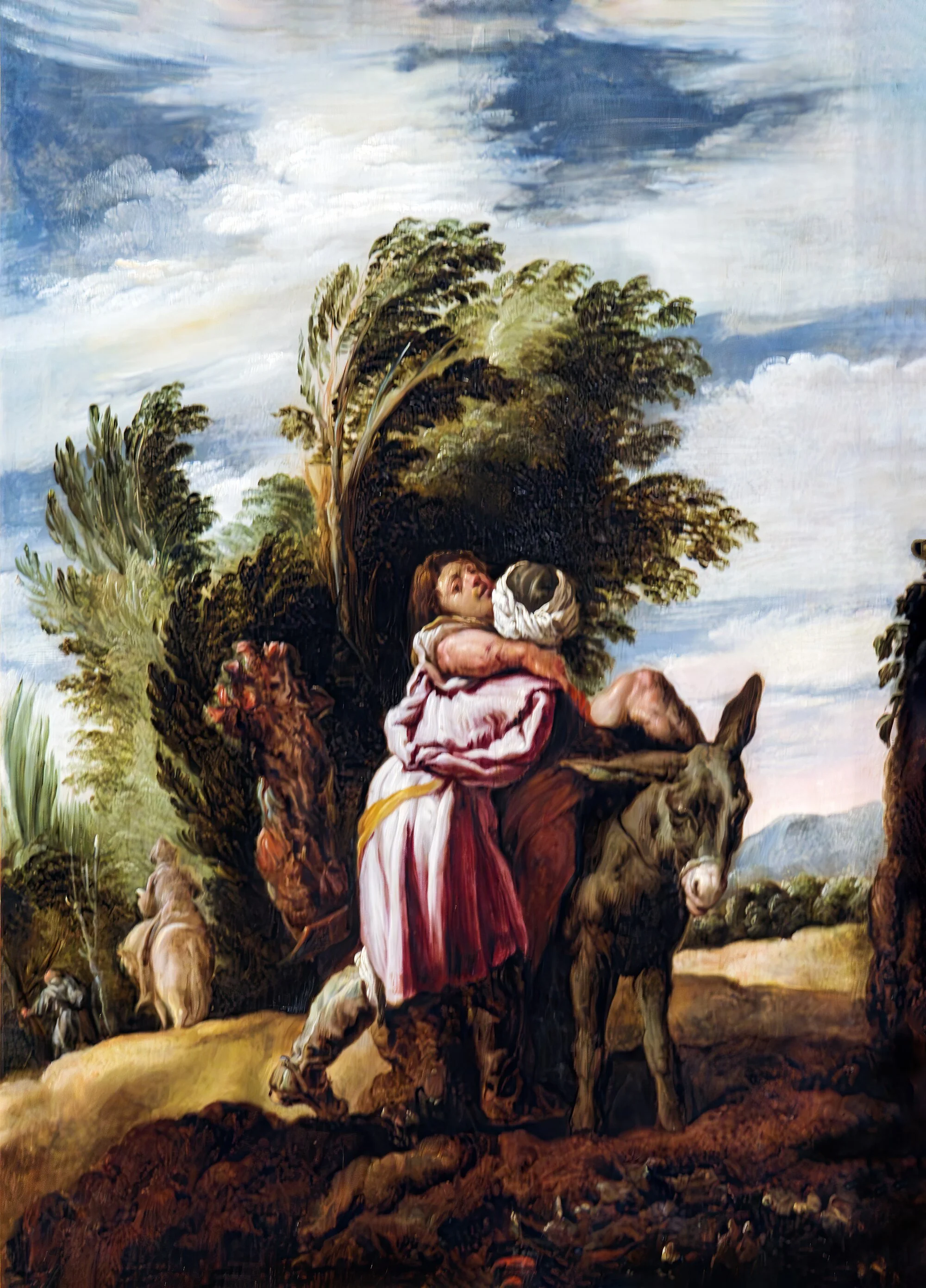Luke 10:25-37
25 Just then a lawyer stood up to test Jesus. “Teacher,” he said, “what must I do to inherit eternal life?” 26 He said to him, “What is written in the law? What do you read there?” 27 He answered, “You shall love the Lord your God with all your heart, and with all your soul, and with all your strength, and with all your mind; and your neighbor as yourself.” 28 And he said to him, “You have given the right answer; do this, and you will live.”
29 But wanting to justify himself, he asked Jesus, “And who is my neighbor?” 30 Jesus replied, “A man was going down from Jerusalem to Jericho, and fell into the hands of robbers, who stripped him, beat him, and went away, leaving him half dead. 31 Now by chance a priest was going down that road; and when he saw him, he passed by on the other side. 32 So likewise a Levite, when he came to the place and saw him, passed by on the other side. 33 But a Samaritan while traveling came near him; and when he saw him, he was moved with pity. 34 He went to him and bandaged his wounds, having poured oil and wine on them. Then he put him on his own animal, brought him to an inn, and took care of him. 35 The next day he took out two denarii, gave them to the innkeeper, and said, ‘Take care of him; and when I come back, I will repay you whatever more you spend.’
36 Which of these three, do you think, was a neighbor to the man who fell into the hands of the robbers?” 37 He said, “The one who showed him mercy.” Jesus said to him, “Go and do likewise.”
Religion, not Religiosity
How many times have we read the parable of the Good Samaritan? What do we read and how do we apply it to ourselves?
Jesus is describing real events that might have happened on that desert road going down from Jerusalem to Jericho. We still have an authentic segment of this road.
Imagine that you have to descend 18 miles after sunset, in the dark or in the moonlight. The road goes between several hills and into a deep valley where unexpected danger might occur at any moment. A few miles after Bethany, the road goes alongside Wadi Kelt, where thieves used to lie in wait for potential passersby to plunder their belongings and, if needed, they would hurt them seriously.
The road Jesus chose for the parable is located between Samaria on the north and the Judean desert on the south, leading eastward from Jerusalem to Jericho. It was known as the Roman Road and was used by all different types of people, each for their own purposes.
The man who fell victim was left naked, between alive and dead (v. 30).
Jesus does not mention who the man was nor which region he was from. Left ln a deadly situation, he is speechless. He can’t respond to questions. Being stripped of his garments, he remains unknown, and no one can guess whether he is a Roman soldier, a Samaritan, a Jew or a Bedouin. He is just a human in critical distress and needs help. Is there any compassionate person passing by who will come to his aid?
As humans, every passerby is supposed to offer first aid as much as they can. Some turn away from their moral values. They create their own reasons to justify their negligence by turning a blind eye to their own humanity; and to the necessity of extending a helping hand to a dying person, even if the case occurs in their own territory. This is similar to the response of Cain, “Am I my brother's keeper?" in Genesis 4:9.
Jesus mentions a Priest and a Levite. They just pass by, having their own reasons and self-justifications. A Samaritan, who is considered to be hostile to those in the Judean district, passes by, is moved by the scene, stops and assists with his own oil and wine. He brings the injured person to an inn and shows his full readiness to cover all the expenses without expecting any reward (vv.33-35).
At this point, Jesus is asking the teacher of the Law and asks us today, "Which one of these three do you think was a neighbor to the man who fell into the hands of the robbers?" (v. 36). "The one who showed him mercy" answers the Lawyer (v. 37). It's amazing how the lawyer remains cautious and not willing to say, "The Samaritan", but instead "the one who did mercy to him."
In both responses, to the first question about "What is the most important commandment" and to the second question about "Who became a neighbor?" Jesus recommends to the lawyer "Go and do likewise" in verses 28 and 37.
Where do I see myself in this parable-- the victim, the lawyer, the priest, the Levite or the Samaritan? Do I try to justify myself as the lawyer did? Am I ready to respond to Jesus' recommendation to "Go and do likewise?"
Our societies today need good Samaritans much more than similar lawyers.
The Lord wants His faithful to live pure religion and not just apparent religiosity. Let us pray for all victims of violence, and for ourselves to listen to Jesus saying to us, "I desire mercy, not sacrifice" (Matthew 12:7).

